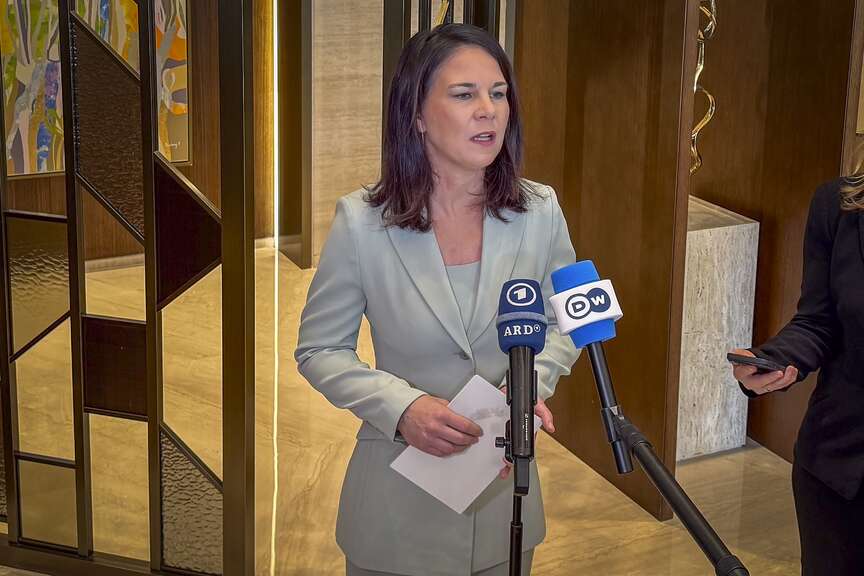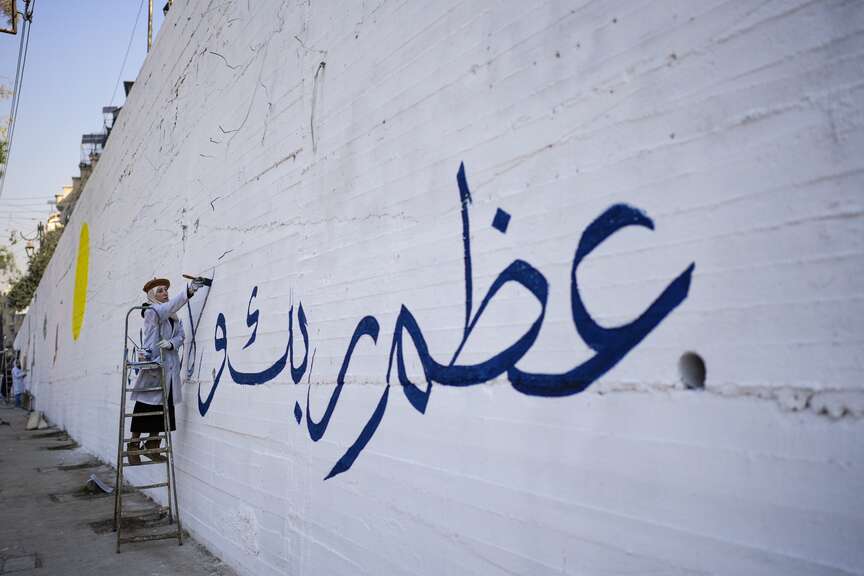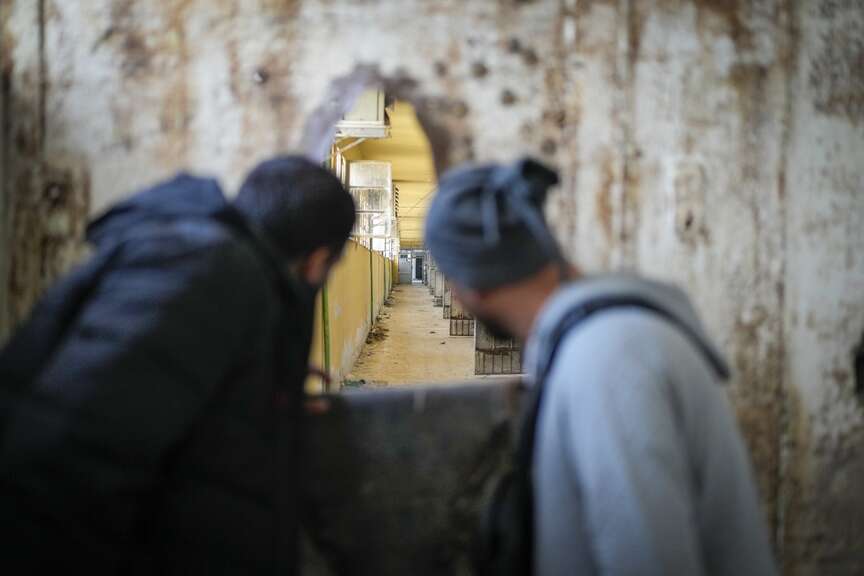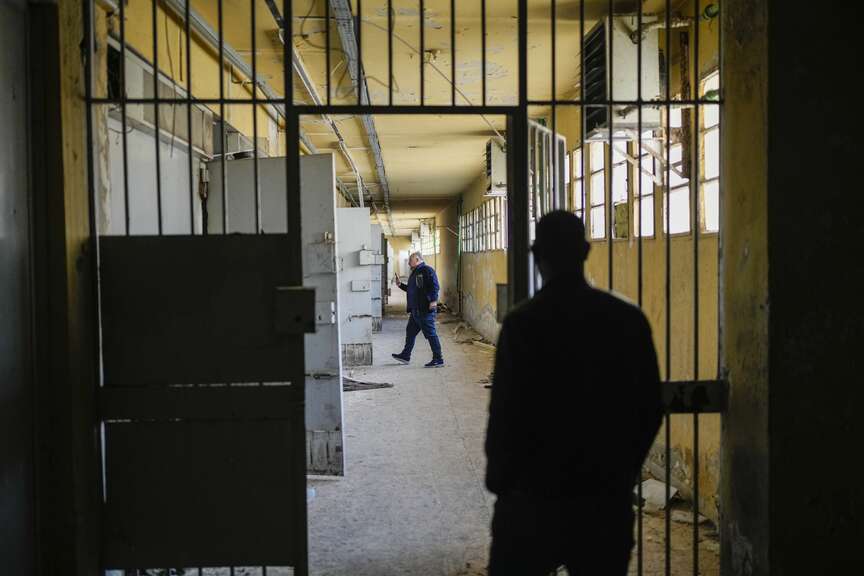RIYADH, Saudi Arabia (AP) -- Saudi Arabia urged top European diplomats at a gathering Sunday to lift sanctions against Syria to boost rebuilding the country and its economy after last month's overthrow of President Bashar Assad.
European and Middle Eastern diplomats met in the Saudi capital Riyadh to discuss Syria's future. The U.S. and European countries have been wary over the Islamist roots of Syria's new rulers -- the former insurgents who drove Assad out of power -- and have said ending sanctions depends on the progress of the political transition.
The interim government led by the former rebels has vowed to move to a pluralist, open system. It is looking for international support as the country tries to recover from nearly 14 years of civil war that killed an estimated 500,000 people and displaced half the prewar population of 23 million. The new Syrian foreign minister, Asaad al-Shaibani, attended Sunday's gathering.
Germany urges 'smart approach' to sanctions
German Foreign Minister Annalena Baerbock said sanctions against "Assad's henchmen who committed serious crimes" must remain in place.
But she called for "a smart approach to sanctions, providing rapid relief for the Syrian population. Syrians now need a quick dividend from the transition of power." She did not elaborate but announced an additional 50 million euros ($51.2 million) in German aid for food, emergency shelters and medical care.
The United States, European Union and some Arab nations began imposing sanctions after Assad's brutal crackdown on the 2011 uprising against his rule and tightened them as the conflict spiraled into war. Some are on individuals in Assad's government, including freezing of assets. But many target the government in general, including bans on many financial and banking dealings, on oil purchases and on investment or trade in some sectors, crippling the wider economy.
There are exemptions when it comes to humanitarian aid, but relief organizations have said that overcompliance by financial institutions hinders their operations.
At the gathering, Saudi Foreign Minister Prince Faisal bin Farhan said international and unilateral sanctions on Syria should be lifted.
Continuing them "will hinder the aspirations of the brotherly Syrian people to achieve development and reconstruction," he said. He praised steps so far by the interim government, including promises to start a political process "that includes various components" of the Syrian people.
Turkey urges 'balance' in international demands of Syria
EU foreign policy chief Kaja Kallas, who also attended the meeting, said European countries want to see a government that includes all of Syria's religious and ethnic communities. "We want to see inclusivity of women also in the process, so these are the things that we are going to discuss," she said.
Turkish Foreign Minister Hakan Fidan said his country, which was a strong supporter of the Syrian opposition to Assad, would try to help Syria in normalizing ties with the international community.
He said it was important to establish "a balance between the expectations of the international community and the realities faced by the new administration in Syria."
He pledged Turkish support to the new government, especially in combating threats from the Islamic State group. "As Turkey, we are ready to do our part to ease the difficult path ahead for the Syrian people," he said in comments carried by Turkey's state-run Anadolu Agency.
The United States has eased some restrictions
Last week, the United States eased some of its restrictions on Syria, with the U.S. Treasury issuing a general license, lasting six months, that authorizes certain transactions with the Syrian government, including some energy sales and incidental transactions.
The U.S. has also dropped a $10 million bounty it had offered for the capture of Ahmad al-Sharaa, a Syrian rebel leader formerly known as Abu Mohammed al-Golani, whose forces led the ouster of Assad last month. Al-Sharaa was a former senior al-Qaida militant who broke with the group years ago and has pledged an inclusive Syria that respects the rights of religious minorities.
The rebels led a lightning insurgency that ousted Assad on Dec. 8 and ended his family's decades-long rule.
Much of the world severed ties with Assad and imposed sanctions on his government -- and its Russian and Iranian allies -- over alleged war crimes and the manufacturing of the amphetamine-like stimulant Captagon, which reportedly generated billions of dollars as packages of the little white pills were smuggled across Syria's porous borders.
With Assad out of the picture, Syria's new authorities hope that the international community will pour money into the country to rebuild its battered infrastructure and make its economy viable again.
----
Follow AP's Syria coverage at https://apnews.com/hub/syria





